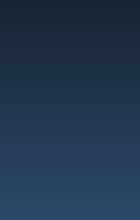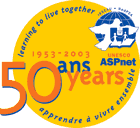| |
Conference 2007

One World, One Globe – Globalisation
… near you?
A report on the 24-hour Agenda 21 NOW! Internet conference 2007
Half a night, a day and another half night of conferencing, that’s what
Agenda 21 NOW! always is for the Agenda 21 NOW! team, the culmination of
the annual team activities.
This year on 9th May - it was the eighth conference - we went into 24
hours of discussion about globalisation.
Yes, the eighth Agenda 21 NOW! conference already! As Agenda 21 NOW!
is getting older, the team is getting more experienced, things are
going easier in an eighth conference than in the first or second.
The conference is getting more multinational – never have there
been more participants from more countries than this year.
Is Agenda 21 NOW! also getting better with the years?
Technically, this question can be answered clearly:
Yes, we think so.
An Internet conference with an expected 1000+ registered participants
requires a fast root server that might handle 150 or 200 participants
at a time being online, reading and writing and thus discussing.
For the first time, no technical problems occurred during the conference
day – at least I haven’t yet heard of any. Those of you who have taken
part in former Agenda 21 NOW! conferences might remember there have always
been times, especially in the European morning, when the conference wasn’t
running that smoothly or even did not run at all for a certain time –
nothing like this happened this year, the technical task force remained
unemployed the whole day.
This year, for the first time, also the technical part has completely
been run by team members. The Linux root server was set up and fully
operated by Johannes Steinmann, a graduate of Kandel Comprehensive in 2005.
All other IT parts, especially the conference software, were created and
operated – as in all the years since our first conference on 5 June, 2000
– by Thomas Detsch, who graduated at Anna-Schmidt-School, Frankfurt, on
the very day of our first conference. Thomas has been a university student
of IT since.
A technical success, ok. What about participants and contents?
This year, let us take a look at some user statistics.
For the conference 2007, 1023 participants fully signed up. “Fully signed up”
means: These 1023 people went through the whole registration process and
received their user name and password to enter the conference.
The registered participants came from 68 countries. As in former years,
it wasn’t Germany who was in the lead in terms of the number of participants,
Germany (174 registered participants) was second to Poland (178) and
being followed by Australia (60), Indonesia (57), Canada (54), Japan (49)
and Israel (42). A number of countries had ten or more registered
participants: Bulgaria, Denmark, Afghanistan, Uzbekistan, the
Czech Republic, Lithuania, Switzerland, Turkmenistan, Chile, Estonia, Nigeria,
Palestine, Bangladesh, Morocco and Russia.
More than ever, the participants were widely spread over the globe, allowing
discussions between people living in very different corners of the earth.
Out of these 1023 registered participants 552 logged into the conference on
the Agenda 21 NOW! conference day and read through what had been written in
Agenda 21 NOW!’s conference rooms. 428 participants wrote at least one,
233 wrote five or more contributions.
This is an experience we have made in all eight conferences: About half of
all registered participants at least once log into the conference during
the conference day, and half of all those who ever log in are very active
participants – participants who not only read but write more than a couple
of contributions.
Talking about the content, it is a bit more difficult to say whether 2007
was successful.
A couple of days after the official end we opened again for a week of
“Conference after the Conference”. The aim was to discuss about what had
happened during the conference, to find out if the conference had been a
success or not. Especially we asked the registered participants to fill in
a short questionnaire to help us find out what was good and bad and what
should be changed in a next conference.
Here are some of the results:
81 % of those who filled in the questionnaire said they liked the
conference or even liked it very much.
Only one participant claimed that he disliked the conference theme, all
others rated the conference theme “quite ok” or better.
The quality of the discussions was rated quite ok (50 %) or good (34 %),
3 % said “very good” and another 3 % “bad”. It is obvious that “quite ok”
is quite ok, but not good enough. Therefore, providing a better conference
quality is one of the major future tasks for the Agenda 21 NOW! team.
56 % of the participants who sent in the evaluation questionnaire said
that they would have liked to discuss and finally adopt a resolution,
36 % said they did not know.
Developing, discussing and finally adopting a resolution demands more of
the Agenda 21 NOW! participants than just discussing with someone at some
time in some conference room. It means a bit of concentrated work for a
number of participants and team members. Will the Agenda 21 NOW!
participants really want to do that? In the last years we estimated no,
but it seems we should try to work with a resolution during the next
conference. A true challenge …
All in all it seems to us that Agenda 21 NOW! in many ways is on a good track.
A big thank you to all team members, great experts and to the many
participants who made the 2007 conference a lively conference!
Since we started developing “Agenda 21 NOW!” in 1999 we have felt that
this project is always a challenge. It seems to be no longer that much
a challenge in a technical way, but making a “good” or “very good”
conference – speaking about the contents – definitely is, as in the very
first conference. Besides all efforts concerning conference quality there
are two essentials we will not change:
1. The communication at Agenda 21 NOW! is a written communication, so
that everyone will be able to see every discussion, participate in
everything and with any computer equipment.
2. Agenda 21 NOW! will remain monolingual – we will continue to stick to
English as the only allowed language. English allows a maximum of
participants from a maximum number of world regions. One language means
no language barrier between participants.
Agenda 21 NOW! is not just a conference, it is a project, a process.
We are open to suggestions and we are open to reliable people who would
like to take part in the making of Agenda 21 NOW! in future. Welcome to
Agenda 21 NOW! !
Trier, 3 July 2007
Martin Jarrath

(c) Agenda 21 NOW! 1999-2016.We are not responsible for the content of linked pages.
E-mail to webmaster: webmaster@agenda21now.org
|









